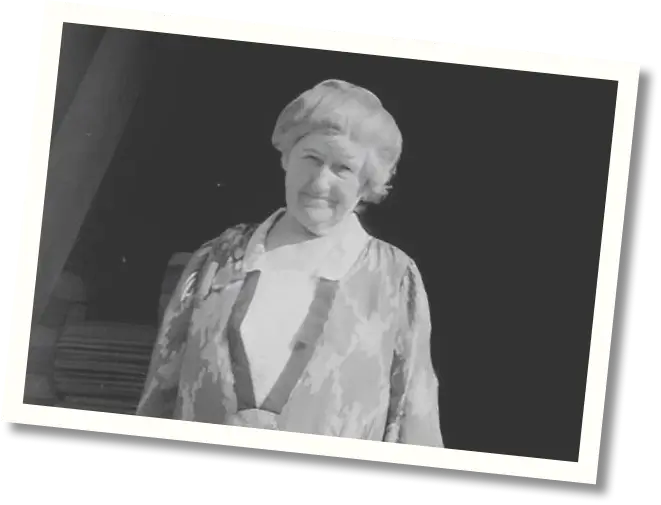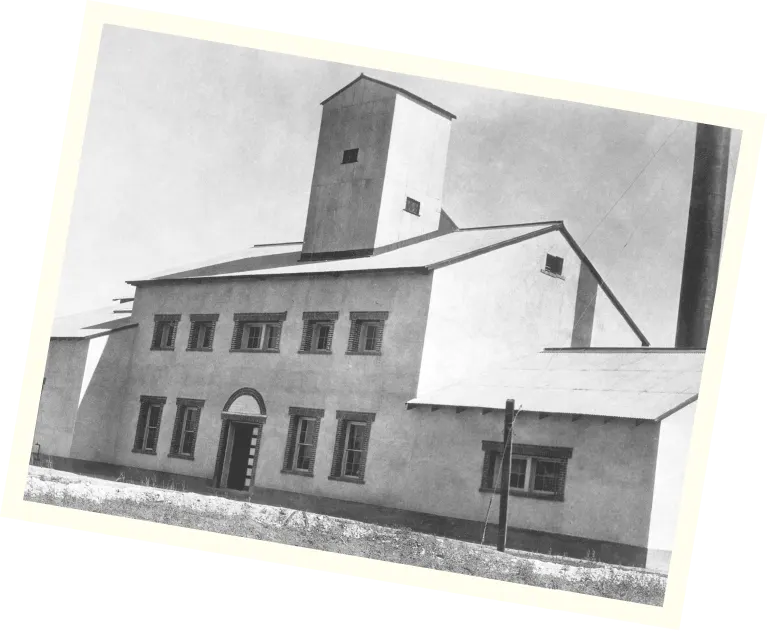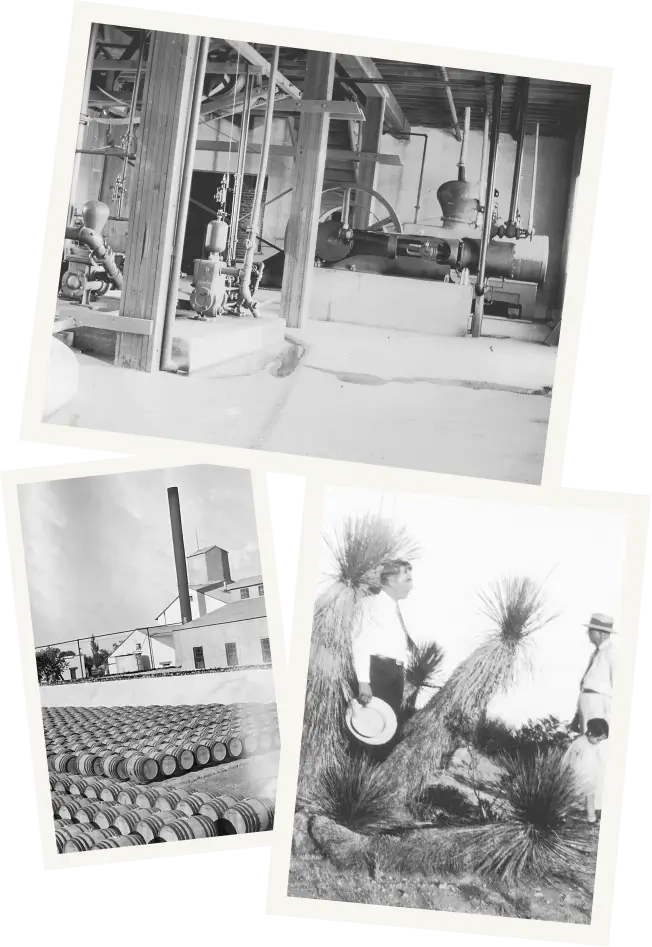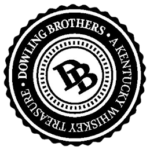Restoring the
lost legacy of a
Visionary
Maverick
Mary Dowling was a trailblazing woman distiller in the male-dominated world of pre-Prohibition bourbon, yet her name remains largely unknown. During Prohibition, she was the sole distillery owner to move production to Mexico, evading the constraints of the Dry Laws. Long hidden in the shadows of history, here is Mary’s remarkable story.
1859-1874
Becoming Mary Dowling
Mary Ann Murphy, the eldest of ten children born to Irish Catholic immigrants John and Mary Murphy, started her life in Bourbon County but grew up in Lexington. In 1874, she married John Dowling, an Irish immigrant. The Dowlings settled in Lawrenceburg, Anderson County, just west of the Kentucky River, where John had established himself as a cooper and distiller. The couple was well-matched: determined, entrepreneurial, fiercely intelligent, and committed to excellence. Together, they were destined for great success.


1880-1900
John quickly recognized Mary’s business acumen, and their marriage blossomed into a true partnership. By the mid-1880s, they owned three distilleries, including Waterfill and Frazier. They had six children, and Mary would give birth three more times, with their youngest son, Emmett, born in 1898 when she was 39. Eight of the Dowling children lived to adulthood.
In 1886, John and Mary moved into Dowling Hall, a 10,000-square-foot mansion on South Main Street in Lawrenceburg, which still stands today as a testament to the Dowlings’ determination and vision. From impoverished beginnings, John and Mary Dowling had truly arrived.

1903-1919
Mary Dowling On Her Own
Tragically, John passed away in 1903 after a brief illness. As a mother of eight, Mary stepped in to lead the Dowling empire, becoming the only woman to run a major distillery in the male-dominated Kentucky bourbon industry, but her impact was also felt far beyond whiskey.
When the Waterfill and Frazier distillery burned down in 1904, Mary swiftly rebuilt it, improved distribution channels, and expanded production. When her line of credit was cut off due to perceptions of a woman-run business being a “credit risk,” she helped re-charter a bank, although she was denied a seat on the board.
Mary, the wealthiest woman in Lawrenceburg, was also a civic leader who championed progressive causes. As president of the local women’s club, she played a crucial role in bringing healthcare services to the rural poor of Lawrenceburg. During World War I, she led Liberty Bond sales with distinction and was renowned for her charity, quiet elegance, and the exceptional quality of Waterfill and Frazier bourbon.
Her formal portrait, taken by a renowned New York photographer, displayed a determined “Don’t Mess with Me” look—an attitude she would need to navigate the challenges of Prohibition.
Was Mary Dowling a bootlegger?
Perhaps. She certainly believed Prohibition, which devastated the once-prosperous Anderson County, was a terrible idea. While it’s romantic to imagine Mary Dowling, 64 years old and the richest woman in town, driving her Packard over the Kentucky hills to evade Revenuers, the more likely explanation is that her youngest son Emmett, a recent Harvard graduate, sold small quantities of Waterfill and Frazier from the basement of Dowling Hall.

1920-1926
Fighting Prohibition
When the Volstead Act took effect in 1920, every distillery in Kentucky shut down except for six licensed to sell “medicinal” bourbon. Unfortunately, Mary’s distilleries were not among them.
In March 1923, a government sting operation, assisted by a known bootlegger, targeted Dowling Hall. Mary and four of her adult children were charged with violating the Dry Laws, igniting a fierce five-year legal battle.

During two highly publicized and scandalous trials, Mary spent a small fortune defending her family name, her outrage intensified by the fire in a government warehouse where 4,800 bottles of confiscated Waterfill and Frazier bourbon “mysteriously disappeared.” Rumors suggested that government agents sold the missing bourbon and set the fire to cover up their crime. Imagine that!
In March 1926, Mary and her children were convicted. Undeterred, Mary was determined to fight the verdict and find a way to profit from Prohibition. She appealed the conviction, buying time to execute an audacious plan.

1926-1930
Spitting In The Government's Eye, Ciudad Juarez, And The D & W Distillery
In 1926, Mary not only appealed her conviction but also hired Joe L. Beam—yes, from that Beam family—and his two sons to dismantle her Waterfill & Frazier distillery and relocate it to Ciudad Juarez, just across the border from El Paso. Today, Joe L. Beam’s descendants remain publicly grateful to Mary Dowling for helping their family survive Prohibition. Over the next three years, Mary and her son Emmett frequently traveled to Juarez to meet with her Mexican partner, Antonio Bermudez, a lifelong friend who later became managing director of PEMEX, the Mexican national oil company.
By 1927, their joint venture, D & W Distillery, was legally producing large quantities of Waterfill and Frazier, much of which was smuggled into the whiskey-starved US—but not by Mary or her family. Pappy van Winkle, who legally sold small amounts of Mary’s American-made Waterfill and Frazier as “medicinal bourbon,” complained that her Mexican bourbon was cutting into his profits.
In 1928, after securing her family’s financial future by defying the government, Mary’s legal battle ended when the US Supreme Court declined to hear her case. To keep their mother out of prison, her sons John and Emmett were sentenced to a year and a day in the Atlanta penitentiary, serving six months. Mary was ordered to pay a hefty fine of $10,000, while her daughters received only a slap on the wrist.

1930-PRESENT DAY
Mary Dowling’s Legacy

Mary Dowling passed away in February 1930 at a Catholic hospital in Louisville at the age of 71, three years before the end of Prohibition. The D & W Distillery continued producing bourbon in Juarez until 1964 when Congress passed a law mandating that “bourbon” had to be produced in the US, effectively making Mary Dowling the mother of bourbon as we know it today.
To honor the courage of this American original—a woman ahead of her time and a bold, visionary thinker—we present two Mary Dowling whiskies commemorating the 100th anniversary of her remarkable defiance and ultimate triumph over the Dry Laws.
Mary Dowling Tequila Barrel is a Kentucky Straight Bourbon Whiskey finished in tequila casks, paying tribute to Mary’s D & W Distillery in Juarez, where local lore says the margarita was invented. Mary Dowling Double Oak Barrel is a Kentucky Straight Bourbon Whiskey offered at double oak cask strength. Both whiskies are boldly original and embody the indomitable spirit of Mary Dowling.
Mother of Bourbon
The Greatest American Whiskey Story Never Told
The outrageously inspiring story of the most successful and influential woman distiller of Kentucky Bourbon that nobody’s heard…until now!
Hardcover release on April 29, 2025
by Eric Goodman (Author), Kaveh Zamanian
